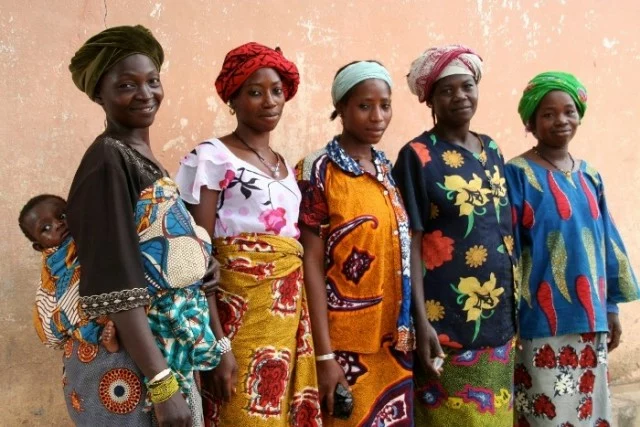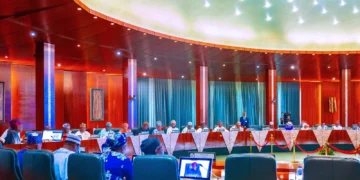The ultimate definition for what constitutes good health is that health is not the absence of diseases or infirmity, rather it is peoples’ state of physical, social and mental wellbeing. Ageing is one of the natural phenomena in life that no one can run away from. Once a child is born, the process of ageing begins immediately. Every older woman was once a young woman. Men and women are affected differently as they age; while women tend to have rapid developmental maturity than their male counterparts, such physical and rapid emotional development comes with consequences. People age gracefully when they have a healthy lifestyle as well as better opportunities and can access good medical facilities. As pointed out in a report by the United Nations Population Fund (UNFPA) & Help Age International, women on the average tend to live longer than men but most times these years are not without one sickness or the other and sometimes, could be very chronic. This is because the immune system starts to get weaker with age; the functioning of the body system becomes less active.
People in the older generation class in Nigeria are those citizens, 60 years and above, who may become dependent on the government or their families for their survival after retirement. That notwithstanding, ageing is simply a matter of process. There is gender-based inequality with ageing. Ageing affects the health and psychology of women. While there are obvious body or physical changes as women age, there is also the emotional weight of accepting these changes. The complications around reproductive health, sexual activities, menopause, diabetes, stroke, high blood pressure, waist pains/arthritis as well as the inability to freely move which contributes to obesity, all take their toll on women as they advance in age. In her book, „Women and Gender Studies“, Professor Restituta Igube of the University of Abuja noted that the quest to have children and look after them is inbuilt/inherent in women and no matter the situation, it is something every woman would cherish to do by all means. In this regard, a woman who is 60 years or above who is not married nor has a child is thrown into a lot of emotional distress.
Medically and even traditionally, for reproduction, it is believed that once a woman gets to 35 years, her chances of becoming pregnant reduces because the number of eggs she is able to produce starts reducing, her ability to successfully carry pregnancy to term minimises, more miscarriages are recorded and the risk of complications during pregnancy increases leading to higher tendencies of undergoing caesarean session (CS). CS on its own is a stigma which women still deal with because in a typical Nigerian culture, there is the perception that women who can‘t give birth naturally during childbirth are not worthy of being called ‘real women’; whereas this may simply be age playing out on women’s reproductive health.
Medical doctors sometimes make the situation more frightening. Many women who become pregnant after clocking 35 are told by people including medical doctors that they are “lucky”. They are even advised against attempting vaginal delivery on account of age. Marriage proposals are equally affected. Some men will not marry a woman who is above 35. Therefore, with some of these in mind, older women are in constant anxiety of whether they would still have babies, and how soon. Juxtapose the above scenario for a 60-year-old woman whose door of child bearing is presumed closed due to age, and the chances of success in In-Vitro Fertilisation (IVF) is slimmer, and miscarriage is high, then the message about the psycho-health impact of ageing in women becomes clearer. One can then begin to imagine how an older woman feels without children arising from fertility issues due to circumstances beyond her control.
As women age, menstrual circle becomes irregular leading to menopause. Menopause is a major change in the process of ageing for women. It is a period when a woman stops experiencing her monthly circle and will not get pregnant because she can no longer produce eggs – that which is responsible for pregnancy. Some women experience early menopause from the ages of 38 or 40 years. This is called premature menopause. To a typical woman who wishes to bear children, it will be heart-breaking to learn about these. Hence, once a woman is approaching 35 and yet to get married and/or bear children, she is thrown into immense psychological pressure from within herself, family/friends and the society at large. It is a big blow on the psychological being of an older woman and more so to that woman who has not had the opportunity of procreation. Depression and anxiety will set in.
A greater percentage of older women than men are widows, which goes to say that she may lack sexual partner by loss of husband, separation or living with one ill health that makes her less attractive for sex. The emotional trauma associated with not having sex as much as desired may be better imagined.
Globally, the rate of diabetes is increasing and Nigeria is not left out. This is attributed to genetics, lifestyle and the kinds of food people consume. It is one of the health challenges prevalent with ageing. When the body no longer has the ability to properly respond to insulin, it stretches the kidney to overload. Heart attacks, strokes, high blood pressure, kidney failure, eye problems and increasing workload for caregivers are part of the effects of diabetes. It is common for a diabetic patient to undergo eye surgery or limb amputation arising from infection on unhealed wound. Again, there is the burden of finding the right food to eat and the ability to control urine for a long time (urinating is always impromptu). Biologically and culturally, women are not able to urinate on the go like men. Consequently, in the mind of a diabetic older woman, accessing Water Sanitation and Hygiene (WASH) services is a major concern. On the other hand, it is too much temptation when a woman has to prepare family meals and not partake in the eating simply because she has to follow her regulated diet.
Closely related to diabetes is stroke and high blood pressure. Both health issues can arise as a result of the complication from diabetes. The most striking revelation is that older men tend to suffer stroke than women. However, older women are prone to die from strokes than men[vi]. High Blood Pressure (High BP) is another health challenge that affects older adults. On another note, there is this popular belief that ‘too much thinking’ contributes to high BP. A lot goes through the mind of an older woman which includes family, career, retirement plan, security and other worries which are enough to increase her BP.
Ageing brings about weakness of bones and joints. It is very easy for elderly women to complain of waist pain and arthritis as they are on the verge of losing the ability to function on their own. This inability to easily move around sometimes adds up to obesity. Most often when this happens, women who used to be very active, like those in the rural areas who used to engage in farming, begin to feel unhappy and aggressive towards family members and caregivers.
All these are really germane and major causes of depression among women that should not be swept under the carpet. It is clear that older women need support systems to be able to deal with the process of ageing in a society like Nigeria. It is a fact that old age comes with the burden of care on the part of family members, caregivers, government and corporate entities. Government of Nigeria needs to come up with support mechanism and policies to reduce the burden of care from the immediate family members of older women especially on the female members. Women are also potential caregivers themselves.
Government should ensure that women who worked in government establishments are paid their pension as at when due to help them seek healthcare when there is no longer direct wages or income.
Government can sensitise people on the existence and implementation strategies of the Basic Healthcare Provision Fund. The fund is a subsidy fund, 1% from the consolidated revenue of the Federal Government, managed by Primary Healthcare Centres across the states. Many women who are supposed to be the major beneficiaries of the fund do not know much about it and as such, are not benefitting. More awareness should be created on the provision and utilisation of the fund particularly how older women can access it.
Geriatric centres (old people’s homes) should be established by Government and equipped across the 36 states of Nigeria and the FCT. All federal universities should be accredited to teach Gerontology, both as General Studies (GST) and at advanced levels for people to understand how to handle older people.
Ogechi Obialo-Isuma,
a promoter of Gender Equality and Social Inclusion, writes from Abuja.
([email protected]).





